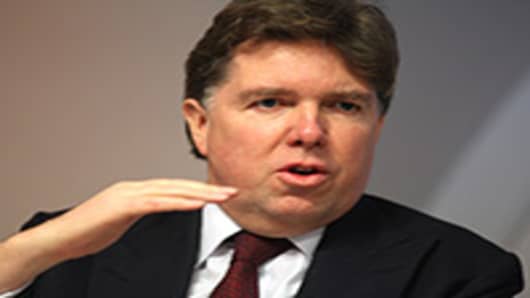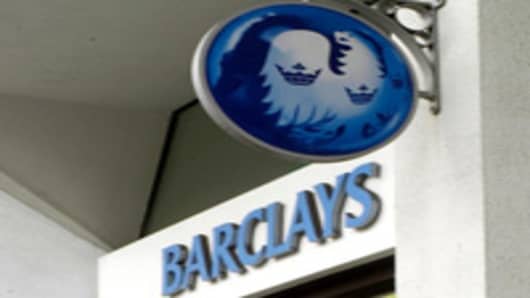Britain's growing interest rate-fixing scandal could claim yet another high-level victim: Paul Tucker, the man tipped to eventually become the next head of the Bank of England.
Barclays, the bank at the center of the scandal, claims that Tucker, currently the central bank's deputy governor, basically condoned Barclay's attempts to manipulate the widely followed Libor interbank rate during the 2008 financial crisis. (Click here for an explanation of Libor.)
Barclays agreed on Monday to pay $450 million to settle allegations it reported artificially low lending rates in an effort to influence the Libor and bolster the bank's bottom line.
The scandal also has forced the resignations of Chairman Marcus Agius , CEO Bob Diamond amd COO Jerry del Missier.
Barclays claims it was told in October 2008 by Tucker that it did not have to submit its Libor interest rates as high as it had done, according to an internal memo sent by Diamond, then head of its investment bank.
“He therefore passed down a direction to that effect to the submitters,” the bank said in evidence to the committee of Parliament, where Diamond will appear on Wednesday to testify.
In a conference call with journalists, Agius warned: “Wait until you see what happens at the Treasury Select Committee.”
A spokesman for the central bank said the BoE would not comment on the memo.
Diamond, meanwhile, is in line for up to 20 million pounds ($31 million) over the next two years following his exit from Barclays, despite calls from shareholder groups to limit his payout.
Barclays maintained the board of “haven’t got round to dealing with” the issue in a conference call with journalists Tuesday afternoon.
Diamond is entitled to one year’s salary — 1.35 million pounds — but could collect up to 15.7 million pounds in long-term share awards (based on today’s Barclays current share price) plus a further 2.3 million pounds of “capital contingent awards.” This all amounts to almost 20 million pounds
During his time at Barclays, Diamond’s pay packages were famously large, earning him the sobriquet “best-paid banker in the City” for a while.
In 2011, more than a quarter of shareholders voted against a 17 million pounds pay package for Diamond, including long-term incentives and a payment for tax equalization after his move from the U.S. This made him the highest-paid chief executive in the FTSE 100.
Some of his biggest rewards came during 2005-08—when Libor manipulation was at its height in Barclays Capital, the division he ran. BarCap, as it is commonly known, was bolstered by the acquisition of collapsed Lehman Brothers’ brokerage arm.
There are already calls for him to hand back some of these bonuses voluntarily, or for the board’s remuneration committee to claw back some of the money awarded during this time. Diamond has an estimated personal worth of 105 million pounds.
He may face pressure to renounce his entitlement to further payouts under the bank’s long-term incentive scheme, awarded last year and due in 2013 and 2014.
The furore over Sir Fred Goodwin’s pension after he left Royal Bank of Scotland following the bank’s part-nationalization led to him relinquishing part of it.
Barclays annual report from 2011 states: “Automatic contractual bonus payments upon termination are not included in Bob Diamond’s contract.” But Diamond has officially resigned rather than been sacked, so this may not apply.
Shareholder activist group FairPensions said: “Now that Barclays has confirmed the resignation of Bob Diamond as CEO details must be provided of any severance payments proposed to be made to him. Remuneration at Barclays has been a source of controversy for the last few years and shareholders would likely regard it as unacceptable if a CEO departing in such circumstances was to receive severance payments."
“Indeed Mr Diamond’s resignation should not mean that Barclays does not seek to claw back his bonuses received during the years when Libor was being manipulated.”
—Written by Catherine Boyle, CNBC. Reuters contributed to this report.
Twitter: @catboyle01




